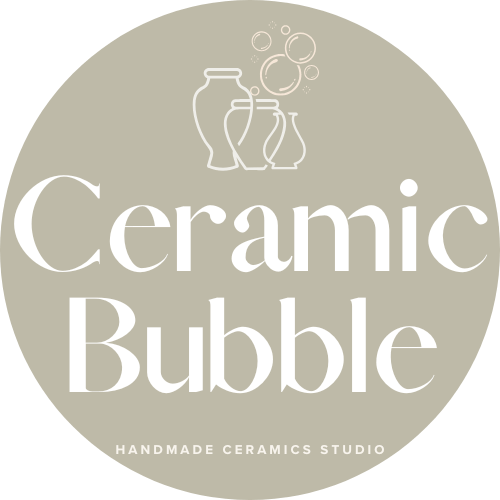Enjoy a 30% discount using the code CEBUB30 before October 15th
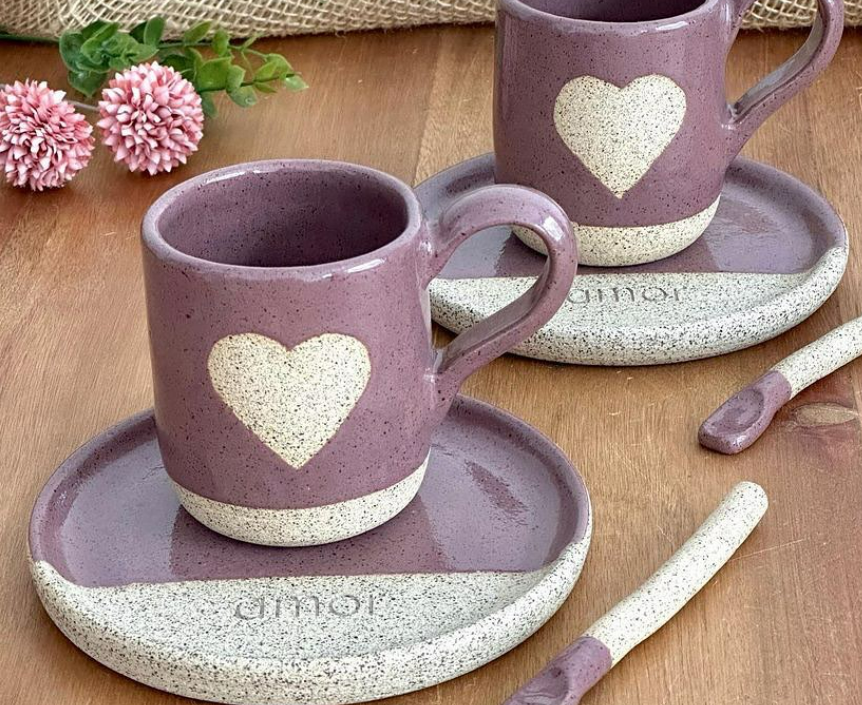
In the world of daily rituals, there’s something special about the mug you choose to hold your morning coffee, soothing tea, or any beverage of your choice. It’s not just about the liquid inside; it’s about the vessel itself, and the material from which it’s crafted. Your choice of mug material can significantly impact the taste, temperature, and safety of what you’re sipping.
In this comprehensive guide, we’ll explore the diverse landscape of mug materials, helping you make informed decisions to enhance your daily sipping experience. We’ll delve into the reasons why mug material matters, consider environmental implications, and take a closer look at the most common materials used for mugs. Whether you’re a coffee aficionado, a tea lover, or simply someone who enjoys a good cup of hot cocoa, you’ll find valuable insights on how to choose the healthiest material for your favorite mugs.
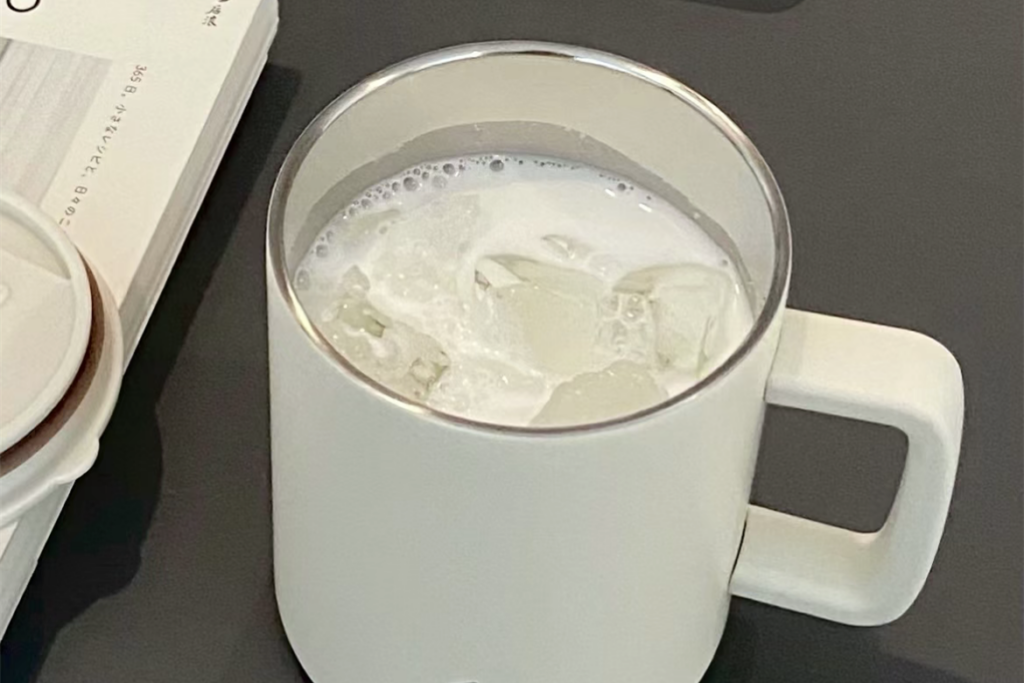
1. Why Mug Material Matters
In the bustling world of coffee shops and home kitchens, the material your mug is made of might seem like a minor detail. However, it’s a detail that can have a significant impact on your overall beverage experience and, more importantly, your health.
The Impact of Mug Material on Your Health:
When it comes to health, your choice of mug material is more than just a matter of aesthetics. It’s about ensuring that the vessel you use to enjoy your favorite beverages doesn’t introduce harmful substances into your drinks. Materials that are unsafe or reactive can potentially leach chemicals, altering the taste and safety of your beverages.
For instance, some mugs made from questionable materials might release lead, cadmium, or other harmful compounds into your drinks. These substances can pose serious health risks when ingested over time. Therefore, selecting a non-reactive and safe material is paramount to safeguarding your well-being.
Environmental Considerations:
Beyond personal health, the choice of mug material also has implications for the environment. In an era where sustainability is a top concern, opting for eco-friendly materials can make a positive difference. Some mug materials, such as bamboo, are not only safe for your health but also gentle on the planet, thanks to their renewability and biodegradability.
Common Materials Used for Mugs:
Mug materials vary widely, with options ranging from ceramic and porcelain to glass, stainless steel, and bamboo. Each material has its own set of characteristics, advantages, and disadvantages. Understanding these differences is essential for making an informed choice that aligns with your preferences and values.
2. The Healthiest Mug Materials
When it comes to selecting the ideal material for your beloved mugs, it’s crucial to consider not only your personal preferences but also the health implications and environmental factors associated with each option. Let’s delve deeper into the healthiest mug materials, each offering its own unique set of advantages.
Ceramic
Ceramic mugs are renowned for their safety and versatility. Crafted from natural clay and fired at high temperatures, ceramic mugs are known for their non-reactive nature. This means that your favorite beverages remain untainted, allowing you to savor the authentic flavors of your coffee or tea. The safety of ceramic mugs also extends to their glazes, as long as they are free from harmful lead or cadmium.
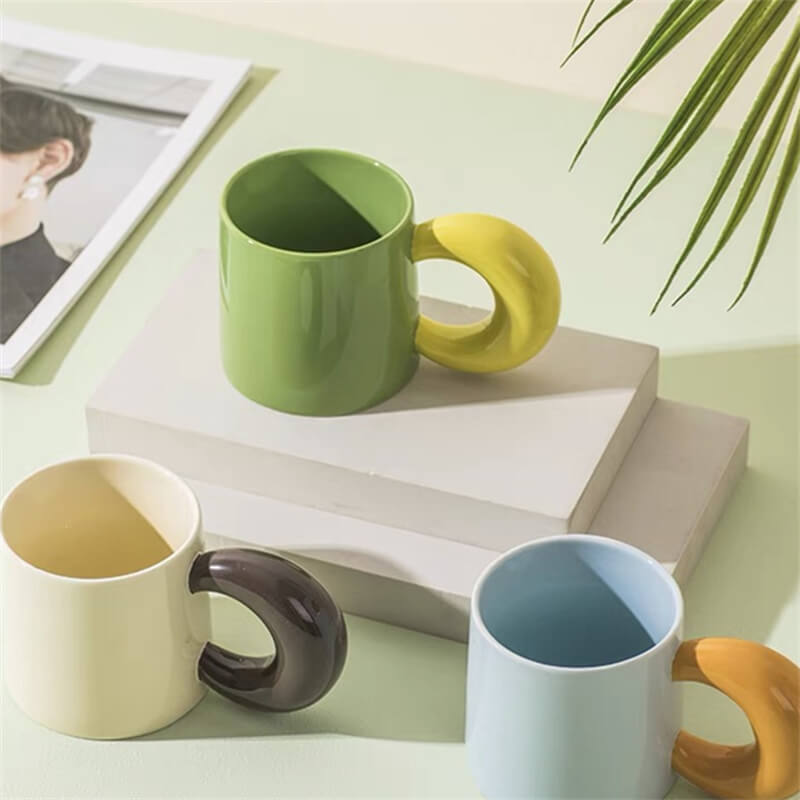
Porcelain
Often mistaken for ceramic, porcelain mugs offer elegance and heat resistance. These mugs, with their refined appearance and ability to keep your beverages warm, are favored by many. Like ceramic, porcelain is a safe and non-reactive material, ensuring that your drinks are free from any unwanted chemicals or flavors.
Glass
Glass mugs are prized for their transparency and purity. As chemically inert materials, they won’t alter the taste of your beverages in any way. The glass’s transparency allows you to appreciate the rich colors of your drinks, enhancing your overall experience. Additionally, glass mugs are both dishwasher and microwave-safe, making them highly convenient for everyday use.
Stainless Steel
Stainless steel mugs are the embodiment of durability and temperature retention. These mugs are robust, capable of withstanding the test of time, and excel at keeping your drinks either hot or cold. Stainless steel is generally considered safe for food and beverage use, making it an excellent choice for those who prioritize longevity and performance.
Bamboo
If environmental sustainability is a priority, bamboo mugs are a fantastic choice. Bamboo is a rapidly renewable resource, making it an eco-friendly option. These mugs are typically free from harmful chemicals, ensuring your drinks remain pure and untainted. While bamboo may not retain heat as effectively as some other materials, it provides a unique and natural drinking experience that aligns with eco-conscious values.
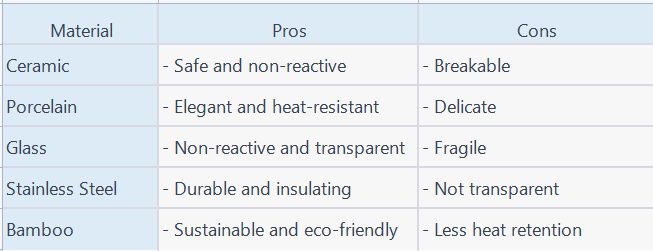
In summary, the healthiest mug materials each come with their unique advantages, allowing you to tailor your choice to your specific needs and preferences. Whether you prioritize safety, aesthetics, heat retention, durability, or sustainability, there’s a perfect mug material waiting for you to discover. So, take your time to explore these options, and rest assured that your daily sips will be both enjoyable and health-conscious.
3. Understanding Ceramic and Porcelain Mugs
You might have heard the terms “ceramic” and “porcelain” used interchangeably, but they aren’t quite the same. Ceramic mugs are versatile and popular for everyday use, while porcelain mugs offer elegance and heat resistance. Let’s take a closer look at these two options to help you make an informed decision.
Ceramic Mugs:
Ceramic mugs are a staple in many households for a good reason. They are made from natural clay that is fired at high temperatures. Here’s why ceramic mugs are a healthy choice:
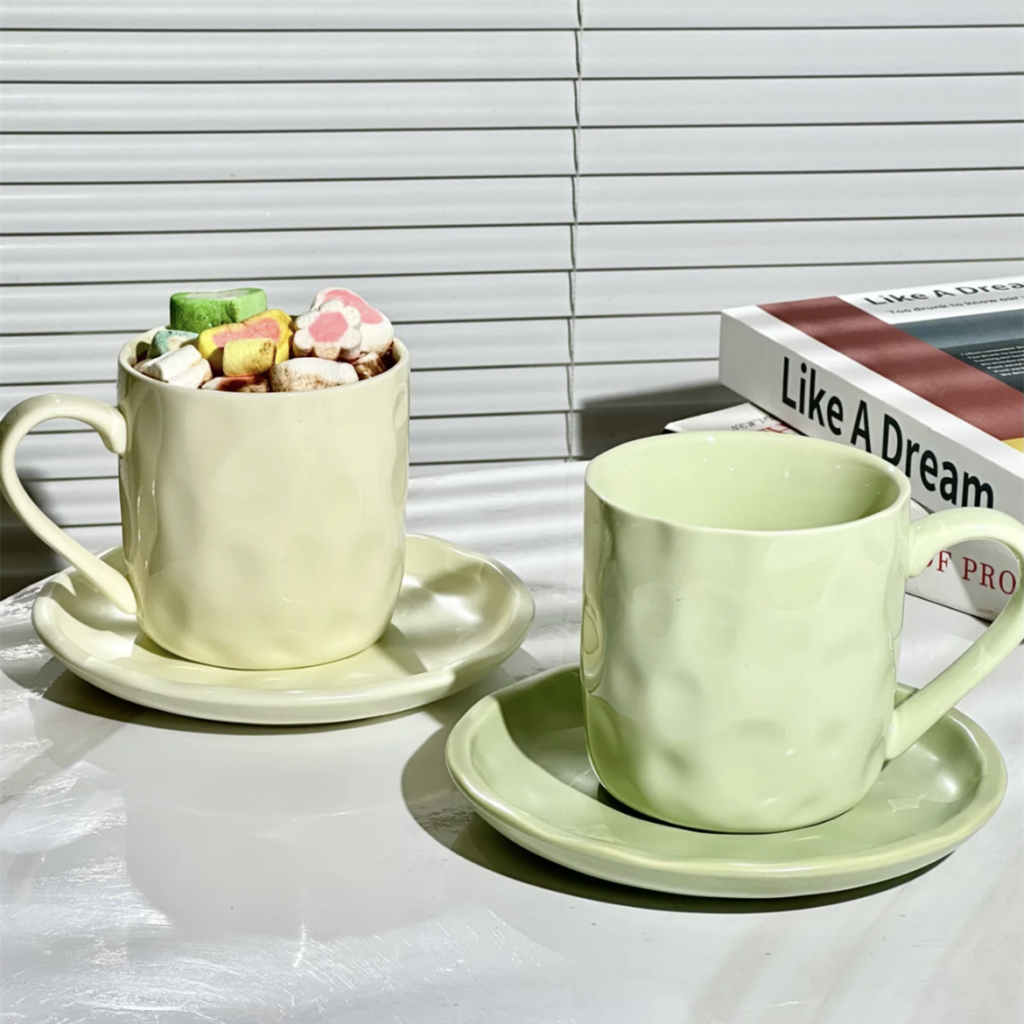
- Safe and Non-reactive: Ceramic is inert and won’t leach harmful chemicals into your drinks. This means you can enjoy your coffee, tea, or any beverage without worrying about undesirable reactions.
- A Wide Variety: Ceramic mugs come in various styles, shapes, and colors, making them a versatile choice for every occasion.
- Affordable: Ceramic mugs are usually budget-friendly, making them an accessible option for everyone.
- Dishwasher and Microwave Safe: Many ceramic mugs are safe for use in the dishwasher and microwave, adding convenience to your daily routine.
Porcelain Mugs:
Porcelain mugs share similarities with ceramic mugs but are known for their elegance and heat-resistant properties:
- Elegant and Heat-Resistant: Porcelain mugs are often thinner and more delicate than ceramic mugs, giving them a refined look. They are also excellent at retaining the heat of your beverages.
- Safe: Just like ceramic, porcelain is a safe and non-reactive material for mugs.
- Delicate: While their delicate nature can be a selling point for some, it’s important to handle porcelain mugs with care, as they can chip or break more easily than ceramic mugs.
When choosing between ceramic and porcelain mugs, consider your preferences for style, durability, and the types of beverages you enjoy. Ceramic mugs are well-suited for everyday use, while porcelain mugs add a touch of elegance to special occasions. Whichever you choose, both materials offer a safe and enjoyable way to savor your favorite drinks.
4. The Benefits of Glass Mugs
Glass mugs have gained popularity for their transparency and non-reactive properties. Let’s delve deeper into the advantages of choosing glass mugs for your daily sips:
- Glass as a Non-reactive Material: One of the standout features of glass mugs is their innate neutrality. Glass is chemically inert, meaning it won’t interact with the beverages you pour into it. Your coffee remains untainted by any unwanted odors or flavors, ensuring a pure and unadulterated drinking experience. This property makes glass an excellent choice for those who relish the nuanced flavors of their brews, whether it’s the subtle notes of a single-origin coffee or the delicate aroma of a fine tea.
- Transparency and Aesthetics: Glass mugs allow you to appreciate the true colors and textures of your beverages. The visual element adds an extra layer of enjoyment to your drink, making it particularly appealing for those who appreciate the artistry of a well-prepared beverage. The clarity of glass enhances the presentation, making it a favored choice in specialty coffee and tea shops, where the aesthetics of the brew are as important as the taste.
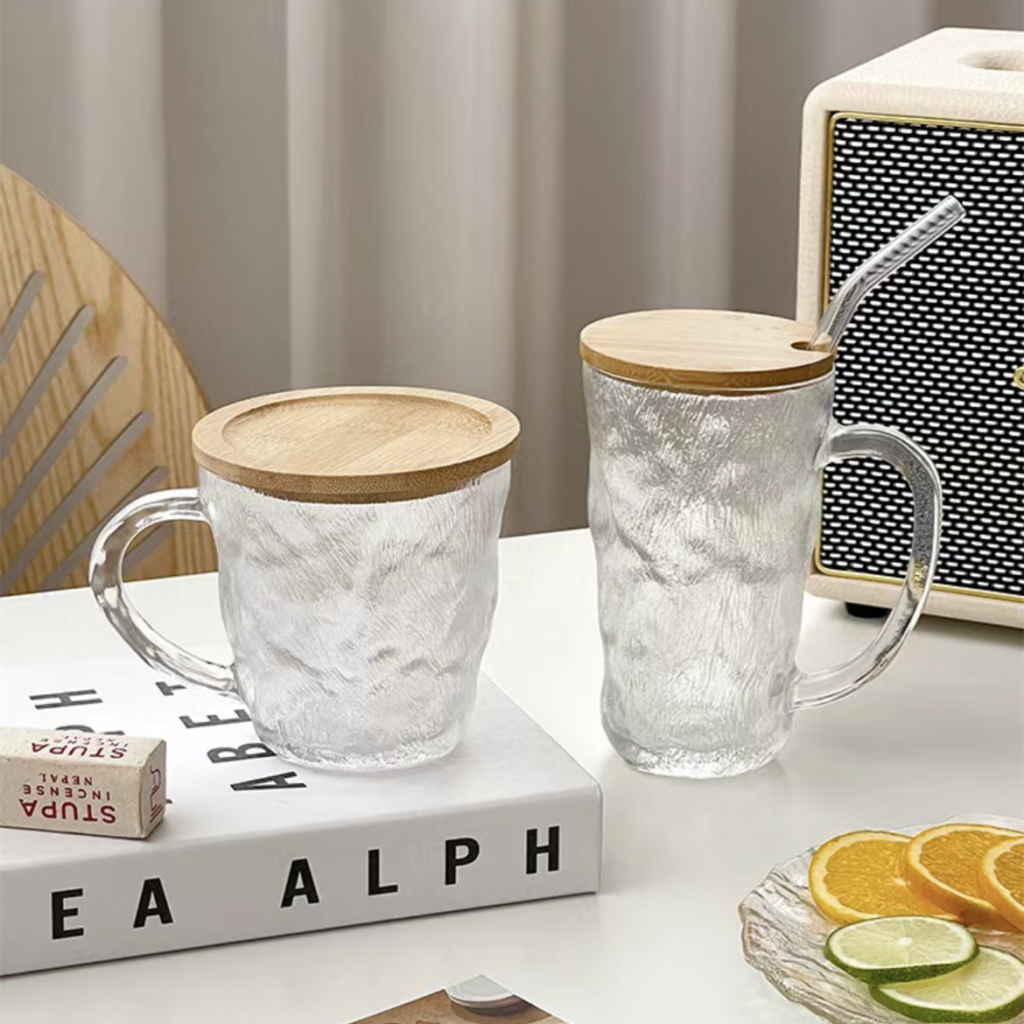
- Heat Retention Properties: While glass may not be as insulating as some other materials, it still retains heat reasonably well. This means your hot drinks will stay warm for longer, allowing you to savor them at your own pace without the need for constant reheating.
- Dishwasher and Microwave Safety: Many glass mugs are designed to be dishwasher and microwave safe, adding to their convenience and ease of use. This makes them a practical choice for those with busy lifestyles.
In summary, glass mugs offer an excellent combination of aesthetic appeal, purity of taste, and practicality. Whether you’re an avid coffee connoisseur or a tea enthusiast, sipping from a glass mug can elevate your drinking experience, providing you with a clear and unadulterated view of the delicious brew within while maintaining the integrity of your chosen beverage.
5. Stainless Steel Mugs: A Durable Choice
Stainless steel mugs are known for their durability and insulation properties. Here’s why they are considered a healthy choice:
- The Durability of Stainless Steel: Stainless steel is a robust and long-lasting material, making it an excellent choice for mugs that can withstand the test of time.
- Heat Retention and Insulation: Stainless steel mugs excel at retaining both hot and cold temperatures. This makes them ideal for keeping your coffee hot on a chilly morning or your iced tea cold on a hot summer day.

- Easy Maintenance: Stainless steel mugs are easy to clean and resistant to staining, ensuring that your drinks always taste fresh.
- Is Stainless Steel Safe? Stainless steel is generally considered safe for food and beverage use. It doesn’t react with acidic or alkaline substances, so you can enjoy a wide range of drinks without worry.
6. Bamboo Mugs: Eco-Friendly and Healthy
If you’re looking for an eco-friendly alternative, bamboo mugs may be the perfect choice:
- The Sustainability of Bamboo: Bamboo is a fast-growing and renewable resource, making it an environmentally friendly choice for those concerned about sustainability.
- Natural and Chemical-Free: Bamboo mugs are typically free from harmful chemicals and additives, ensuring your drinks remain untainted.
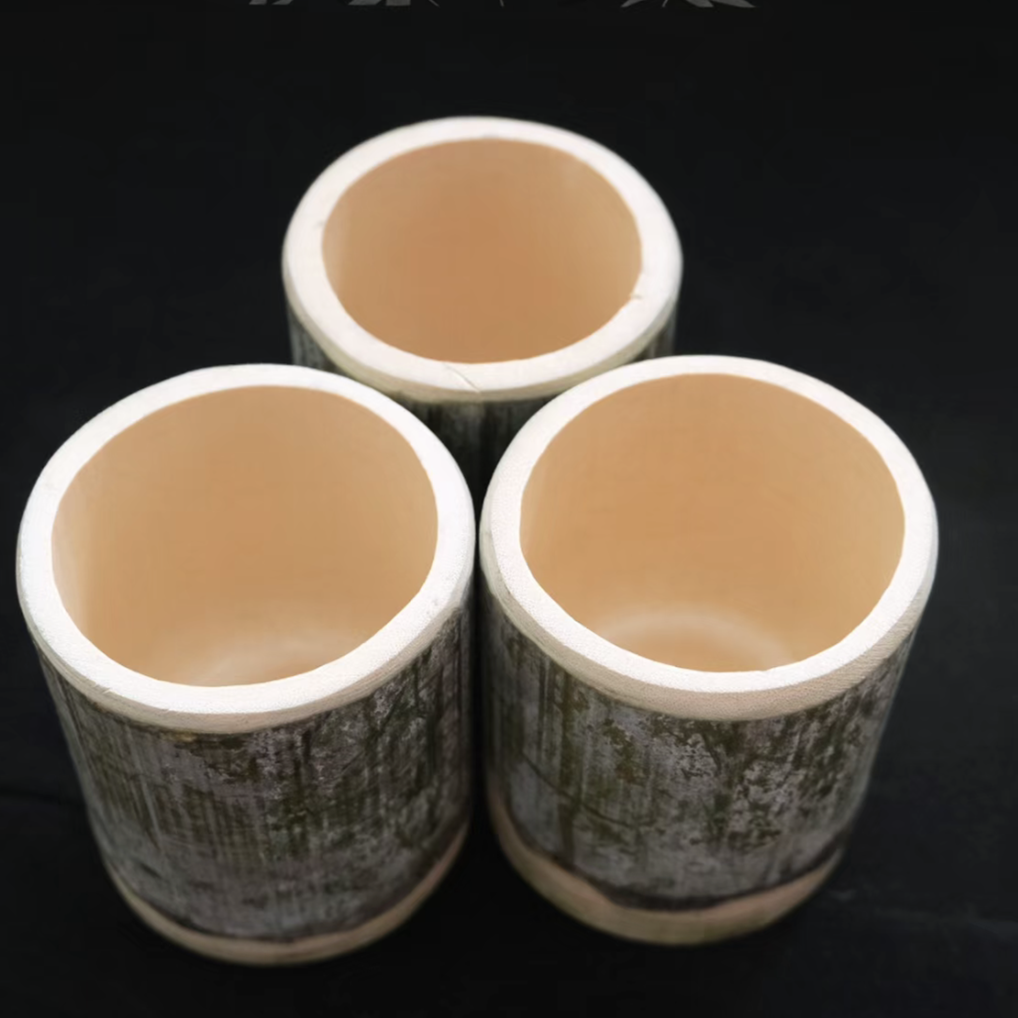
- Temperature Retention: While bamboo may not retain heat as well as other materials, it offers a unique and natural drinking experience.
- A Great Choice for On-the-Go: Bamboo mugs are lightweight and often come with leak-proof lids, making them an excellent option for those who need a travel-friendly mug.
7. Choosing the Right Material for Your Needs
Choosing the healthiest mug material ultimately comes down to your personal preferences and priorities. Consider the following factors when making your decision:
- Taste and Aesthetics: Do you prefer the taste of your beverages in a particular material? Are aesthetics and presentation important to you?
- Heat Retention: Do you like your drinks piping hot or prefer a longer-lasting chill? Consider the heat retention properties of each material.
- Durability: Are you prone to dropping your mugs? Some materials are more durable than others.
- Environmental Impact: If sustainability is a concern, look for materials like bamboo or consider the longevity of the mug to reduce waste.
- Versatility: Will you be using your mug for various beverages and occasions? Some materials are more versatile than others.
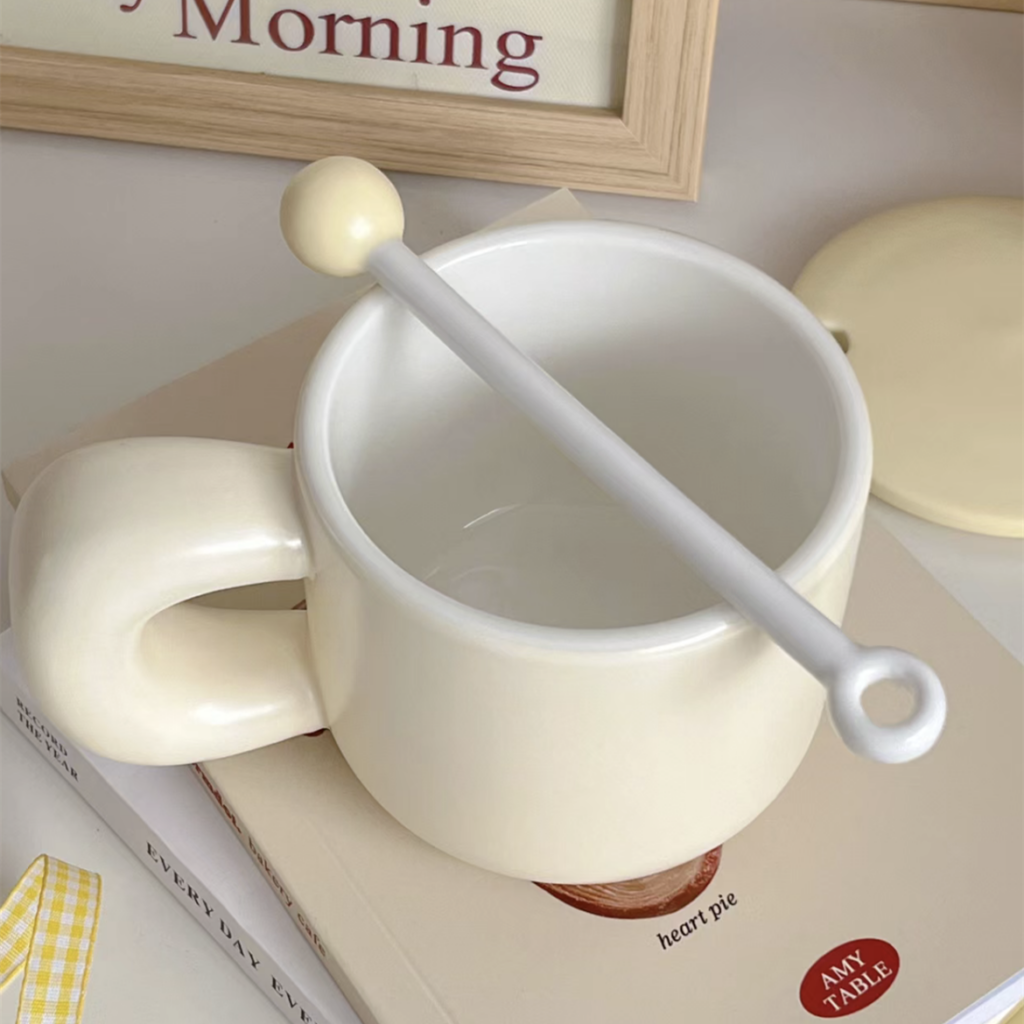
8. Caring for Your Healthiest Mug
Once you’ve chosen the healthiest mug material for your needs, it’s important to take proper care of it to ensure it lasts for years to come. Here are some general care and maintenance tips:
- Cleaning: Regularly wash your mug with mild dish soap and warm water. Avoid abrasive scrubbers that can scratch the surface.
- Stains and Odors: For stubborn stains or odors, mix baking soda with water to form a paste. Gently scrub the affected area and rinse thoroughly.
- Avoid Extreme Temperatures: While most mug materials can handle hot and cold beverages, avoid sudden temperature changes, such as pouring boiling water into a cold mug, as this can cause cracking.
- Microwave Use: If your mug is microwave-safe, follow the manufacturer’s instructions for safe use. Avoid microwaving metal or metallic accents.
- Dishwasher Use: Check whether your mug is dishwasher-safe. While many mugs are, handwashing is often gentler on the material and prolongs its lifespan.
9. Conclusion: Sip with Confidence
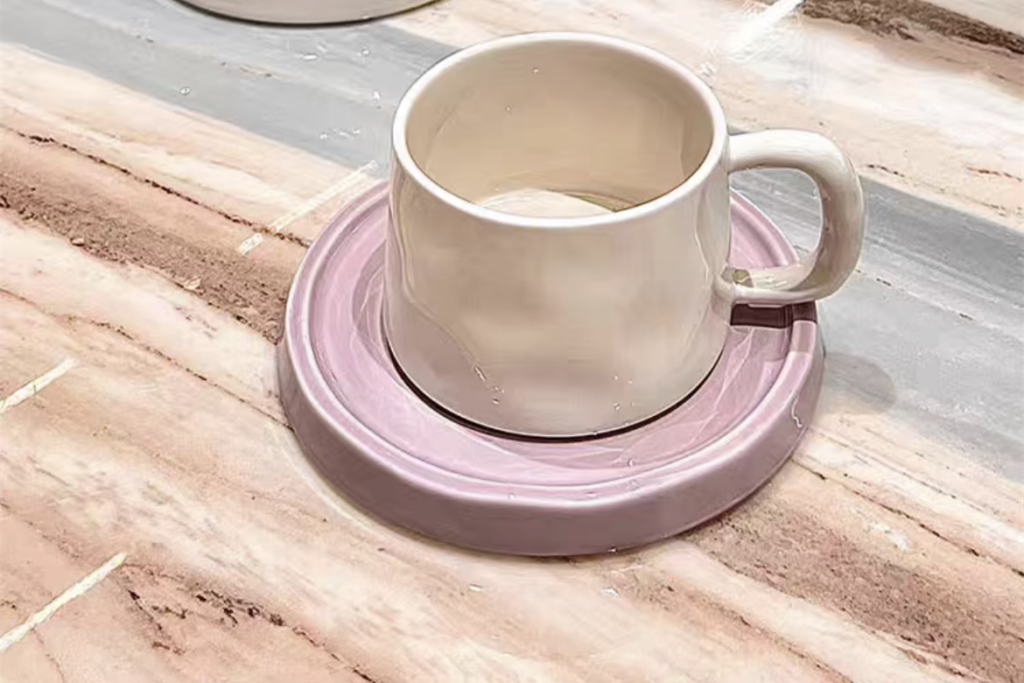
In conclusion, choosing the healthiest material for your mugs is a thoughtful decision that can enhance your daily beverage experience while keeping your health and the environment in mind. Whether you opt for the classic appeal of ceramic, the elegance of porcelain, the transparency of glass, the durability of stainless steel, or the eco-friendliness of bamboo, each material has its unique advantages.
We hope this guide has empowered you to make an informed choice for your mug collection. So, the next time you savor that morning coffee or unwind with an evening herbal tea, do it with the confidence that comes from knowing you’ve chosen the healthiest material for your beloved mug. Here’s to many more enjoyable sips in your healthier, happier, and more eco-conscious world!
